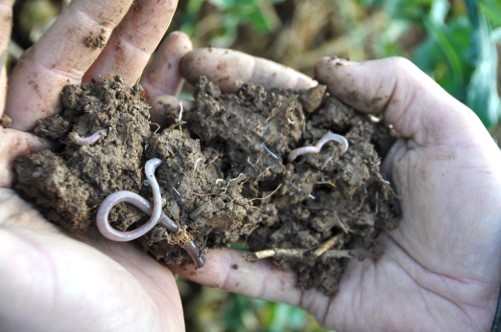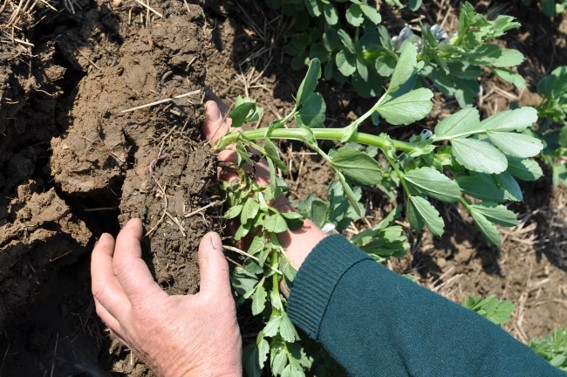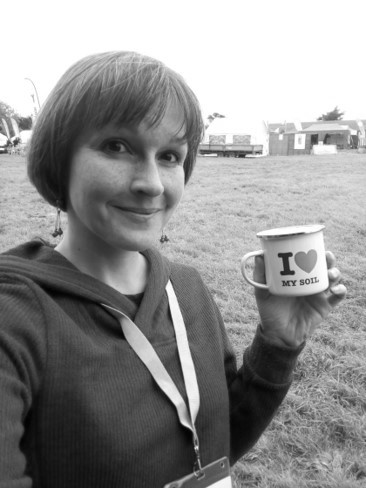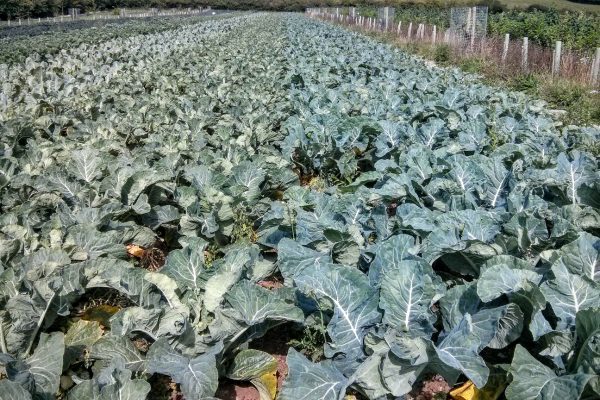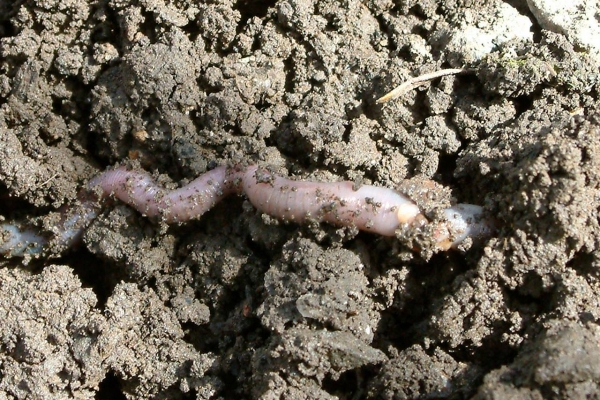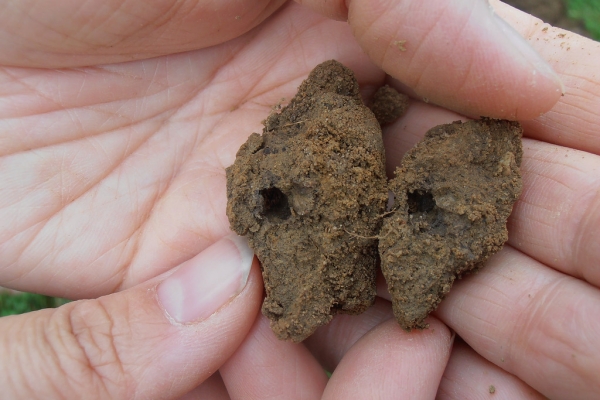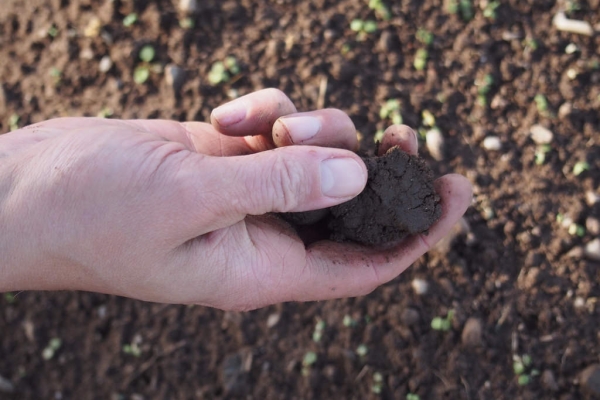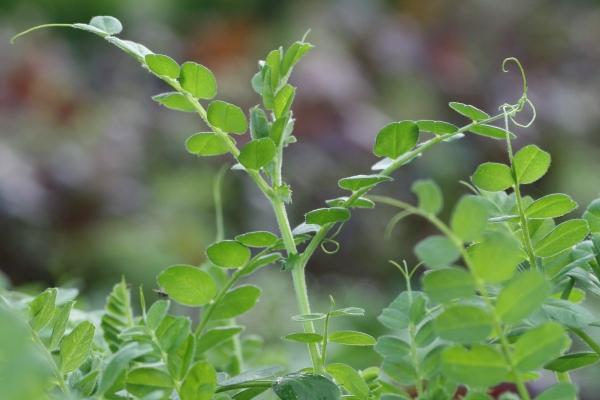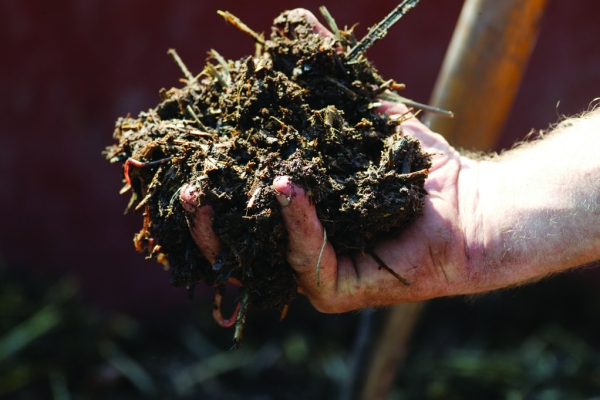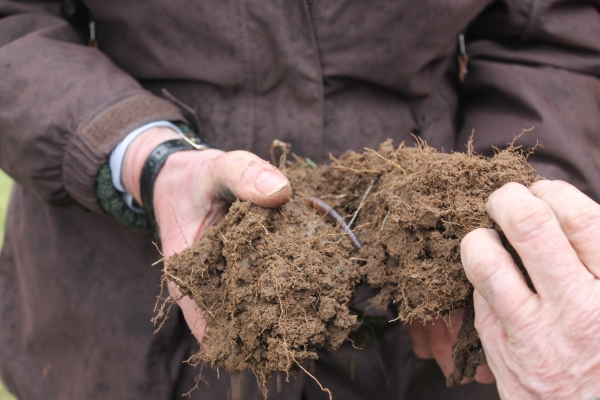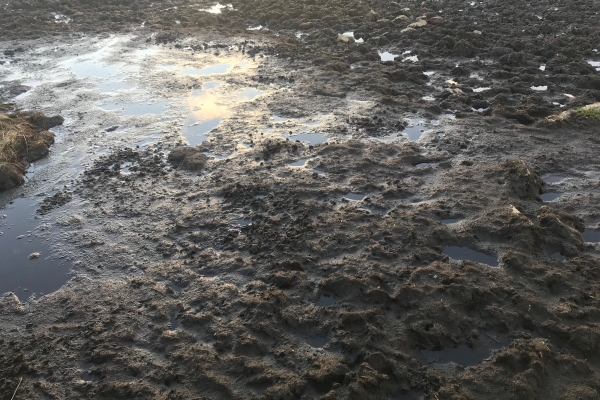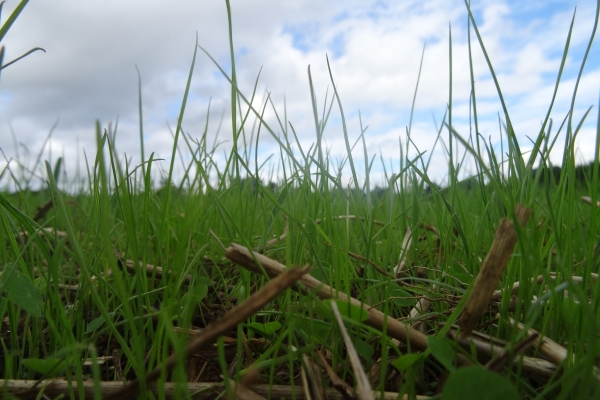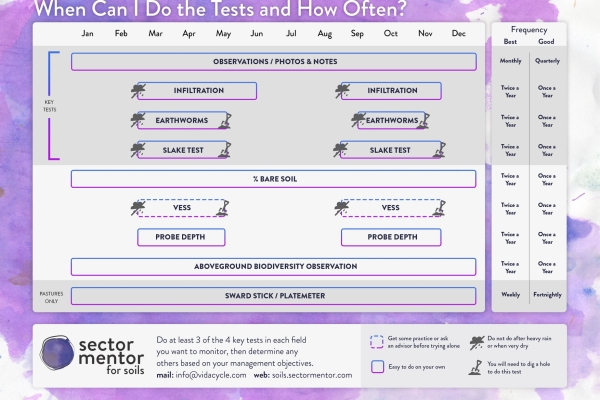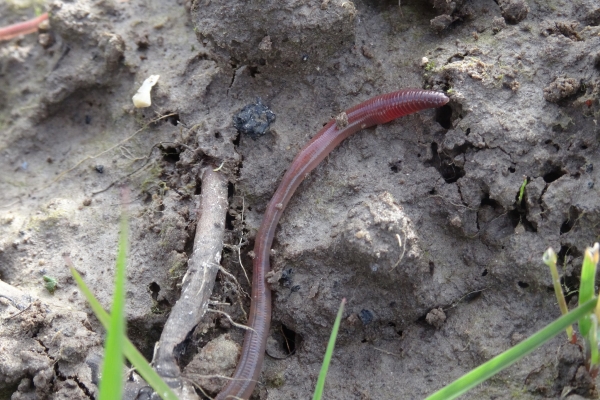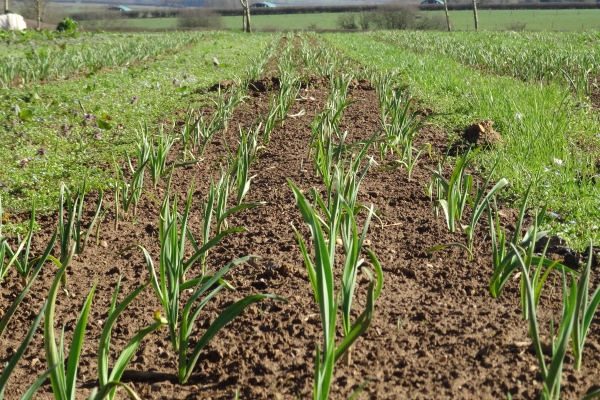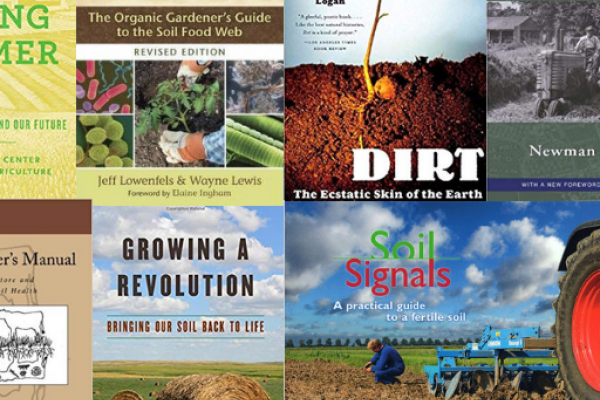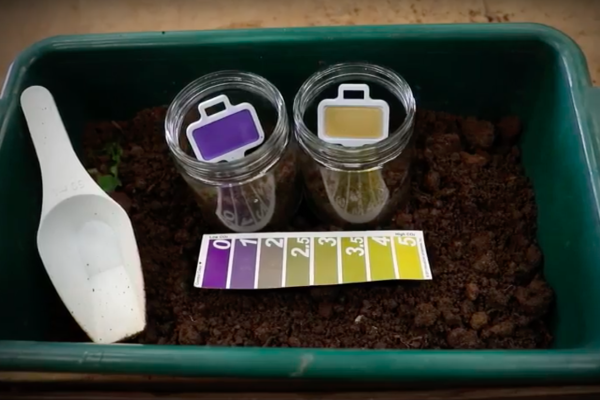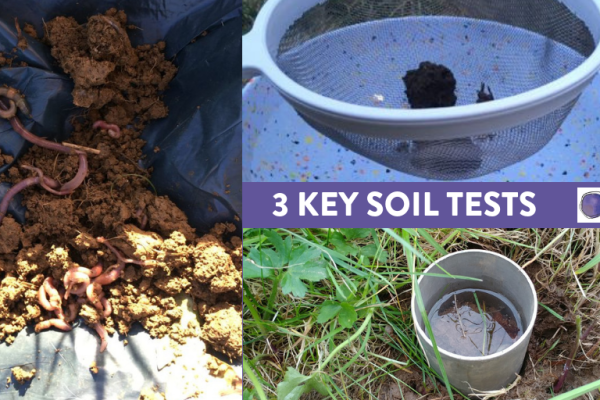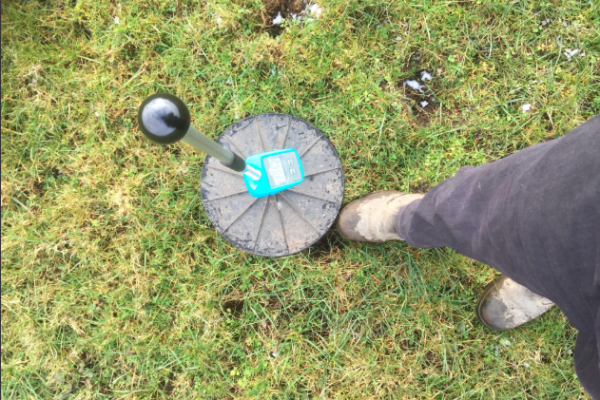Call for farmer & land manager participation in soil management practices project
Cast your mind back to a warm summer day, a time when shortly after it has rained, you are in the garden or your field and the aroma of soil is wafting on the air. That deep warming aroma is called ‘petrichor’, and what you are actually smelling is a compound called geosmin, which is produced by soil bacteria specifically associated with healthy soils. Us humans are extremely sensitive to the scent of geosmin, not only are we able to detect it in parts per billion but it actually has an impact on our physical state, lowering heart rate and decreasing cortisol levels; in other words, smelling good soil makes us feel relaxed and happy.1
Take a moment to let that sink in. Soils are so critical to the human species that smelling healthy soil relaxes us.
Soil is so much more than the medium in which, or through which, our food is produced. Soils, their health and sustainability, underpins all processes which make the dry surface of our planet habitable for humans and other forms of life.
Soil degradation can be therefore literally a life-and-death question. Worryingly, current rates of soil erosion could lead to a complete loss of topsoil within 140 years,2 undermining food and environmental security globally. This soil crisis is now being recognised by international scientific and policy bodies as being just as important as climate change. Indeed, these two are strongly connected. The Intergovernmental Panel on Climate Change Special Report on Climate Change and Land (2019) highlighted that already more than a quarter of land globally is suffering degradation as a result of human activities. Fields are losing soil at a rate of up to 100 times faster than the rate of soil formation, and desertification is growing year on year. Temperature increases and heavy rains associated with climate breakdown are further degrading already damaged soils. All this is already now causing food insecurity, and unless action is taken the impacts will only get worse.
This soil degradation problem is not just happening elsewhere, but is very much a live issue in the UK.3 On the national level, soil degradation already costs the UK economy a staggering £1.2bn annually.4 Because the UK’s soils are quite resilient, much of their degradation remains unseen, although the effects of this degradation can be seen in events such as increases in flooding.
Sustainable soil management is the kind of innovation that is required to get us out of this. Addressing soil degradation and improving soil health is all about local learning. Conventional farming has come to depend increasingly on a small set of universally used chemical and mechanical solutions. Sustainable soil management does not have ‘a blueprint’; the solutions do not come in a can, or with a table. That means that what works for soils has to be locally innovated and re-learnt in each place.
The project to ensure sustainable soil management is becoming an urgent priority across society, throughout UK farming and land management, policy, research and academia. Certainly, the foundational role of soils has been acknowledged by the UK government in Defra’s 2018 A Green Future: Our 25 Year Plan to Improve the Environment, which has set an objective for all soils in the UK to be managed sustainably by 2030. But sustainable soil management depends on both the availability of appropriate knowledge and data as well as the adoption of fitting practices by land managers.
However, there is a lack soil health data5 and of evidence regarding current sustainable soil management behaviours and practices amongst UK farmers. While collecting more data on soils themselves is important, as it is the practices and action of land managers that can directly determine the status of soil and its’ health, we need to also understand soil health awareness and support across the UK land management sectors.
To do this, we are conducting a nationwide survey of soil management practices. The information will help researchers and policymakers understand how policy mechanisms could support farmers and their innovation networks to further spread sustainable soil management practice.
The first part of the project is our nationwide survey of farmers and land managers participation in which could bag you a £500 cash prize, well worth the 15 minutes to complete! Survey QR code:
Not only are we wanting as many farmers and land managers as possible from all sectors across the UK to complete our short survey (which closes on March 16th), but we want to hear from you if you know of farmer/land manager groups that support sustainable soil management practices.
Much of the excellent work done on adopting sustainable soil management is done by farmer-driven networks, who are efficient and powerful innovation drivers;6 and we are striving to produce a map of sustainable land management networks, groups, demonstration sites and so on. So we are really keen to discover as many of these networks as possible and to talk to their organisers.
If you want to find out more about the project, do get in touch (samantha.outhwaite@adas.co.uk / A.Krzywoszynska@Sheffield.ac.uk)
About the authors
Dr Anna Krzywoszynska is a Faculty of Social Sciences Research Fellow. She is also an Associate Director at the University of Sheffield Institute for Sustainable Food. Her research concerns agriculture and food as the key spheres for the interaction between human and more-than-human worlds. She is especially interested in environmental knowledge, ethics, and affect, and how these shape and are shaped by rural and food-related spaces and practices. Her work engages frequently with the natural sciences. Consequently, her research also investigates the potential for ‘opening up’ the spaces of scientific knowledge production to non-certified expertise, as well as challenging the persistent division of labour between social and natural sciences in speaking about materiality, life, and ecology. For the last few years Anna has been exploring the reconceptualisation of soils as lively ecosystems in conventional agricultural practice and its related knowledge fields, and the consequences of this for the future of agriculture and land use.
Dr Samantha Outhwaite is a qualitative social scientist at the University of Sheffield specialising in food and agricultural related research. Her research focuses on agri-food networks, environmental land and farm management knowledge-practices and relationships. With a particular interest in the relational material reproduction of food networks and agricultural practices, specifically in relation to ‘alternative’ food production-consumption, and the reshaping production-consumption assemblages through sustainable interventions and change management. The aim of her work is to develop insights into the socio-cultural and material factors shaping everyday knowledge-practices and relationships of agri-environment networks to inform practical change towards a sustainable agri-environmental future.
References
- The Environment Agency (2019) The state of the environment
- Krzywoszynska, A. (2019) “Making knowledge and meaning in communities of practice: What role may science play? The case of sustainable soil management in England.” Soil Use and Management, Vol. 35 (1), Pp. 160-168
- Evans, D, Quinton, J, Tye, A, Rodes, A, Davies, J, Mudd, S & Quine, T 2019, ‘Arable soil formation and erosion: a hillslope-based cosmogenic nuclide study in the United Kingdom’, SOIL, vol. 5, no. 2, pp. 253-263.
- Graves, A., Morris, J., Deeks, L., Rickson, J., Kibblewhite, M., Harris, J. & Farewell, T. 2011. Cost of soil degradation in England and Wales (CTE0946). Final project report to Defra.
- The Environment Agency (2019)
- The state of the environment Krzywoszynska, A. (2019) “Making knowledge and meaning in communities of practice: What role may science play? The case of sustainable soil management in England.” Soil Use and Management, Vol. 35 (1), Pp. 160-168
